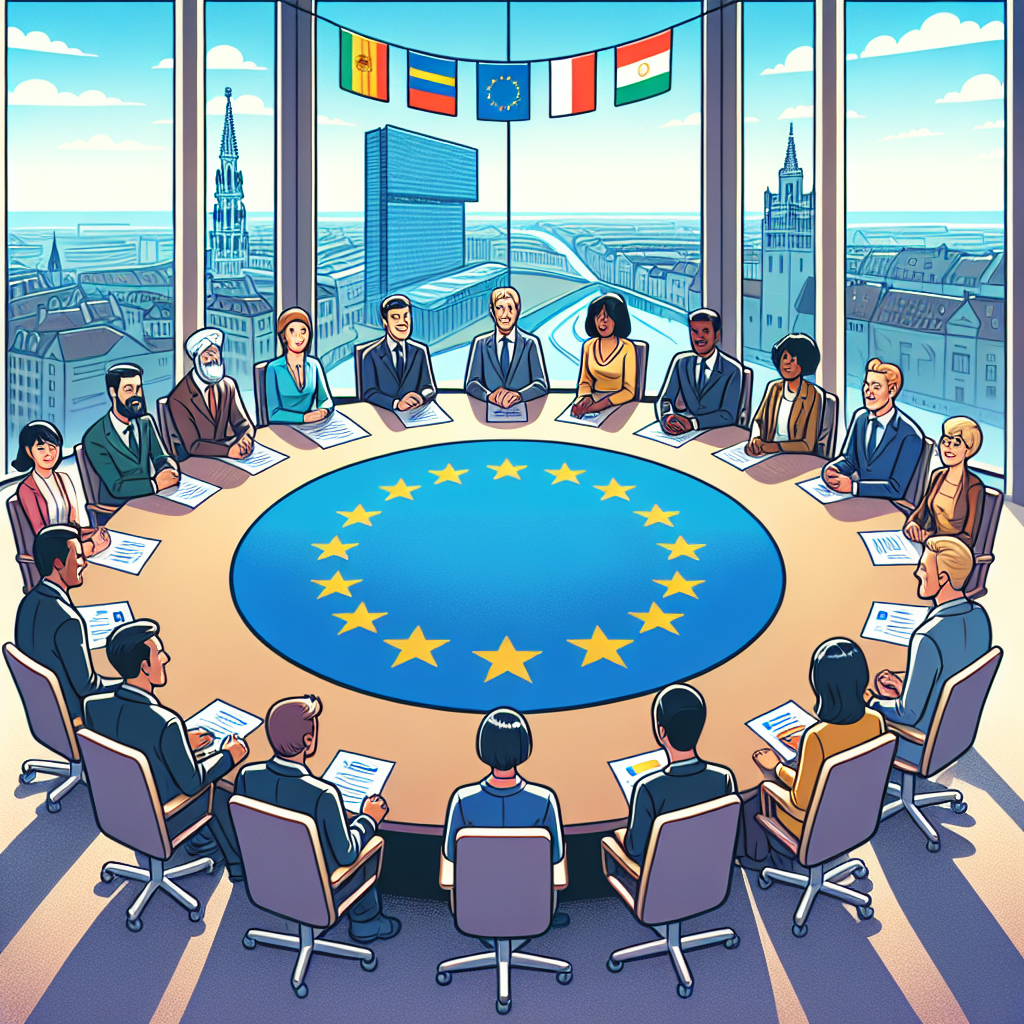EU Leaders Bolster Defense Ties with Ukraine in Pivotal Summit
European Union leaders signed a security agreement with Ukraine during a summit, pledging ongoing support against Russia and strategizing for the future. The summit focuses on bolstering defense, investing in military capabilities, and planning EU enlargement to include Ukraine, Moldova, and the Western Balkans.

European Union leaders signed a security agreement with Ukraine on Thursday, kicking off a two-day summit at which they will also set a strategic course for the EU for the next five years and appoint the people who will run the EU's key institutions. Leaders of the 27 EU countries, meeting formally for the first time since European elections on June 6-9, gave a warm welcome to Ukrainian President Volodymyr Zelenskiy, who made a rare personal appearance in Brussels for the signing ceremony.
The security deal underlines EU support for Kyiv, fighting off Moscow's invasion for a third year, despite gains by the far-right in European elections, uncertainty created by French snap elections and the U.S. presidential vote in November. Draft conclusions of the summit showed the leaders will reiterate their pledge to support Ukraine as long as it takes, stressing that "Russia must not prevail" and that Ukraine must get back the land annexed by Moscow.
They will also ask EU institutions to work out the details of a G7 deal to provide 50 billion euros in loans for Ukraine that would be serviced by profits generated by Russian central bank assets frozen in the West after Moscow's invasion. The war in Ukraine laid bare the EU's lack of preparedness for a conflict as the bloc struggles to supply Kyiv with enough weapons against Russia, prompting calls for more EU coordination of defence systems and investment in defence industries.
"We have had been under-investing in our defence and now we have to recover the time that we have lost," EU top diplomat Josep Borrell said on arrival at the summit. "And we have to do a big financial push to increase our defence capabilities. This is not going to be easy." EASTERN DEFENCE LINE AGAINST RUSSIA
Poland, Lithuania, Latvia and Estonia called on Wednesday for the European Union to build a defence line along the bloc's border with Russia and Belarus to protect the EU from military threats and other harmful activities from Moscow. "We are talking about external European borders," Poland's Prime Minister Donald Tusk told reporters.
"We are talking about a threat to all of the EU and the political West. I am pretty sure that today all our partners in the EU understand much better than ever before that common European responsibility for our security is something absolutely needed today," he said. Investment in defence is part of the EU's "strategic agenda" that the leaders aim to agree on at the summit -- a document that tells EU institutions what European governments want them to focus on during their 2024-2029 term.
Apart from defence, the draft strategic agenda calls for a more competitive EU to withstand economic pressure from China and the United States and for preparing the bloc for enlargement that would include Ukraine, Moldova and the Western Balkans. The agenda is to help the next head of the European Commission, due to start in October, prepare a work programme. The 27 national leaders are expected to nominate Ursula von der Leyen for a second term as European Commission president.
As part of a package agreed by three pro-EU centrist political groups, Portuguese ex-premier Antonio Costa would preside over the European Council of EU leaders and Estonian Prime Minister Kaja Kallas would be foreign policy chief. The three groups - the centre-right, centre-left and liberals - have the necessary majority to get the package approved at the summit. But there could still be some resistance, with Italian Prime Minister Giorgia Meloni and Hungarian Prime Minister Viktor Orban critical of the deal.
(This story has not been edited by Devdiscourse staff and is auto-generated from a syndicated feed.)
- READ MORE ON:
- EU
- Ukraine
- defense
- security agreement
- Russia
- Moscow
- European Union
- G7
- loans
- military
ALSO READ
Global Summit in Switzerland: Aimed at Russian Isolation, Tests Ukraine's Diplomacy
Russian President Putin demands Ukraine surrender four regions, abondon bid to join NATO to stop war
Sweden Intercepts Russian Aircraft Amid Baltic Tensions
Russian Aircraft Breaches Swedish Airspace Over Gotland
Tragedy Strikes Ulakly Village Amid Russian Shelling










